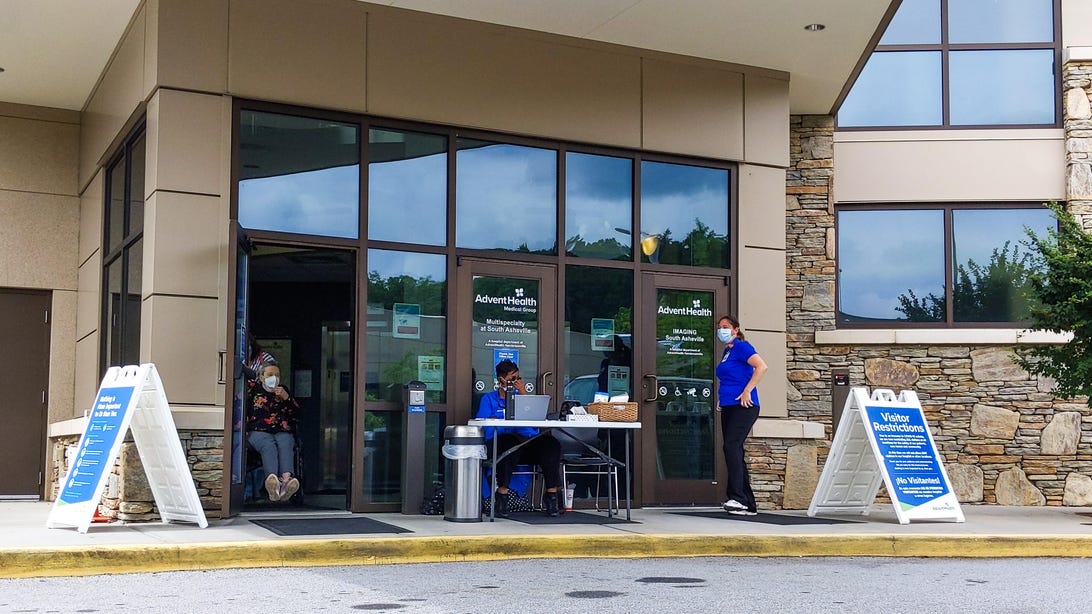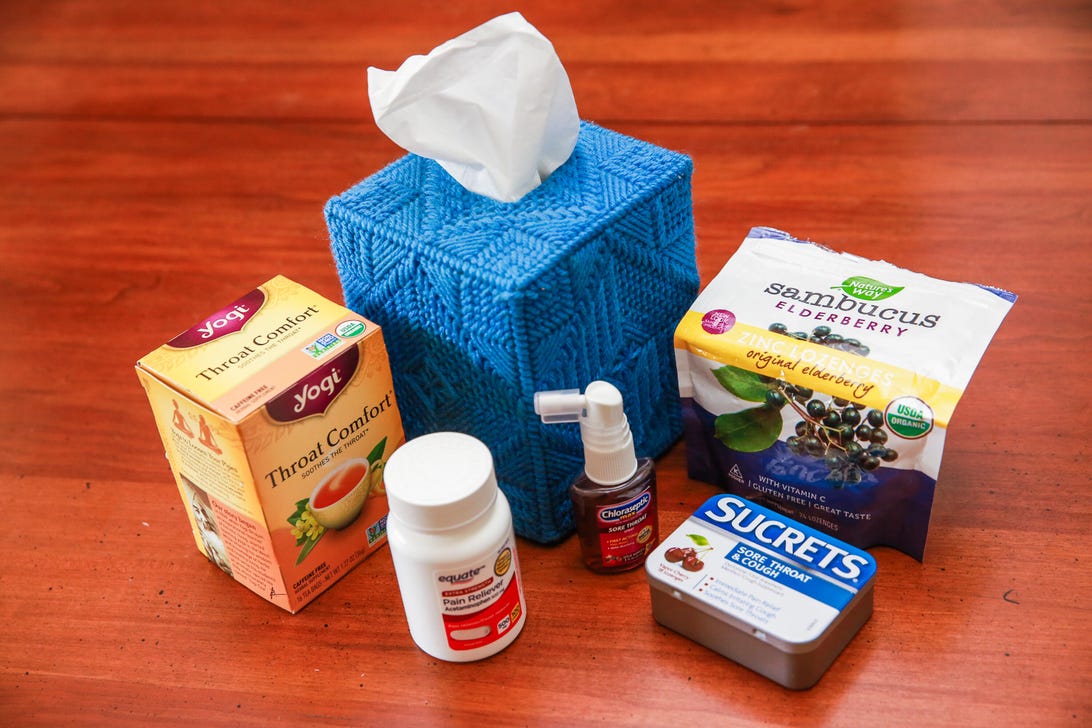Once You Have Cholera Can You Get It Again
For the most up-to-date news and information about the coronavirus pandemic, visit the WHO and CDC websites.
Since the beginning of the coronavirus pandemic, experts have grappled with the question of how much immunity someone has once they've been sick with COVID-nineteen and whether that'll protect them in the futurity. While the coronavirus continues to mutate and piece of work its fashion around the globe, more people have recovered from COVID-19 and may be wondering what kind of immunity that gives them to ward off a second infection, and whether they still demand a vaccine. The reply to that 2d question is yes.
According to the The states Centers for Disease Control and Prevention, every person eligible should get a COVID-19 vaccine, including those who've been ill with the coronavirus and recovered. This is because studies have shown that vaccination provides a strong boost in immunity to those who've recovered from COVID-xix, and vaccination is a much safer fashion to become immunity from the coronavirus than getting infected with COVID-19.
A CDC study released in August constitute that unvaccinated people who previously had COVID-19 were about 2.34 times more probable to get reinfected than vaccinated people who've had it. Another study published this calendar month by scientists at the Yale Schoolhouse of Public Health and the Academy of North Carolina at Charlotte, which examined other coronaviruses related to the virus that causes COVID-19, found that immunity following COVID-19 infection might be short-lived. This may exist especially true with contagious new variants such equally delta and delta plus.
"As new variants arise, previous immune responses become less effective at combating the virus," said Alex Dornburg, who co-led the study, according to a Yale press release. "Those who were naturally infected early in the pandemic are increasingly likely to become reinfected in the near hereafter."
Matt Weissenbach, epidemiologist and senior director of clinical affairs for clinical surveillance and compliance at Wolters Kluwer, told CNET in August that you should think of a coronavirus vaccine as a "top-off" to your immune arrangement'south gas tank if you've already had COVID-nineteen.
"Certainly, whatever immunity is meliorate than nothing," Weissenbach said. "But at this indicate there's no replacing the protective factor of vaccination."
How much natural amnesty practise y'all accept after COVID-19, exactly? How likely are you to get it twice? Does it mean you tin skip the 2nd dose of the vaccine? For many questions surrounding the coronavirus, research is still underway. Hither, nosotros walk you through what experts know and, just as importantly, what they don't know about COVID-19 reinfection, including what to look out for and steps you can accept to protect yourself and become tested.

Patients become checked in for their doctors' appointment exterior the facility and aren't permitted indoors until they go a text that the physician is set up to come across them. Free N95 masks were being given to those about to enter.
Sarah Tew/CNETIs getting reinfected with COVID-nineteen something I should worry about?
As of August, Weissenbach said COVID-19 reinfection cases brand upward less than 1% of all COVID-19 cases. But tracking reinfection accurately is difficult because of decentralized testing, lack of communication betwixt labs and a limited number of United states labs that save COVID-19 testing samples, he said. In order to confirm reinfection, scientists need to compare the genetic material of previous and current tests.
Another factor that might pb to underreported reinfection cases is that many second instances of COVID-19 are mild, which leads people to not realize they're infected again, virologist Theodora Hatziioannou told Healthline.

Recovering from COVID-19 can require bedrest.
Angela Lang/CNETDoes testing positive twice mean I've definitely been reinfected?
Not necessarily, particularly if you're tested within three months of offset getting sick, according to Weissenbach. If someone tests positive for COVID-nineteen, tests negative and and then tests positive again, it'due south likely due to viral shedding of the original virus, he said.
"Many viruses tin can shed for quite some time after the illness has subsided," Weissenbach said. True reinfection with COVID-19 ways that someone was infected with the virus on two different occasions, commonly months apart. Long COVID-xix, a syndrome that some people develop afterward having the coronavirus, is too not a reinfection or agile infection.

In the waiting room at the doctors' office, signs on every chair inquire that patients refrain from sitting.
Sarah Tew/CNETWhy do I need the vaccine if I've already had COVID-19? Do I demand both doses?
According to a written report from Kentucky that was analyzed in the CDC report on COVID-nineteen reinfection, people who previously had COVID-19 were about twice as likely to get it again if they weren't vaccinated, suggesting that the coronavirus vaccines are very effective even if you've already had the virus.
"If you have had COVID-xix before, please still get vaccinated," CDC Managing director Dr. Rochelle Walensky said in August. "Getting the vaccine is the best style to protect yourself and others effectually you, especially as the more than contagious delta variant spreads effectually the country."
Weissenbach said that the strength of someone's natural immunity from infection likely won't terminal "over the long haul," and that vaccination might provide better protection. This is because vaccines target a "particular reaction" from your immune system, he said.
"It's washed so in a very targeted and emphasized mode then that information technology mostly is going to be a more robust, lasting immune response than may otherwise be provided naturally through your body," Weissenbach said. Think of information technology every bit a "double dose," he said.
Merely research shows people who've already had COVID-19 strongly do good from a unmarried dose of a COVID-19 vaccine, which is not the case for people who haven't been sick. Co-ordinate to an article in Nature, some people who've had COVID-19 and received just ane vaccine shot mount immune responses equal to or greater than people who got both doses only never had COVID-19.
To sum information technology upwards: Research shows that COVID-19 vaccines requite yous stronger amnesty if you've already had the virus, but it probably isn't as imperative for you to get both doses, though the guidance still is for everyone to get both.
Long COVID-19 and vaccines
Getting a coronavirus vaccine is helping some who are living with what'due south often called "long COVID" later on being diagnosed with the coronavirus. Experts are still researching why, exactly, but getting a COVID-19 vaccine is helping salve the symptoms of some long-haulers.
In an earlier conversation with CNET most long COVID, Dr. Nasia Safdar, director of infection control at the Academy of Wisconsin, said, "Vaccination serves 2 purposes I, of course y'all want to get it before you accept COVID and then it protects you from it, but even in the people who have had the infection, anecdotally, it seems that vaccination helps with the symptoms of long COVID."
If I'm ill, how long should I wait to go the vaccine?
According to this Q&A with Dr. Jennifer Pisano, an infectious disease specialist with the University of Chicago Medicine who also had COVID-19 and is now vaccinated, you can become the vaccine anytime after y'all're no longer infectious or in quarantine.
People who received monoclonal antibodies or convalescent plasma as treatment for COVID-xix, notwithstanding, should wait 90 days earlier getting the vaccine, according to the CDC. It's recommended to wait if you've received monoclonal antibodies every bit treatment because they forestall your body from forming a robust immune response to the vaccine, according to a Cleveland Clinic study.
People with multisystem inflammatory syndrome should also consider delaying vaccination until they're no longer sick, the CDC says.

It'south hard to say whether COVID-19 symptoms such every bit dry coughing and headache get worse or better with a second infection.
Sarah Tew/CNETIs COVID-19 worse the first time or the 2d?
With nigh viruses, a second infection is commonly milder than the first because the body has built antibodies against it. However, that's not always the instance, and there's still much most SARS-CoV-2 doctors are continuing to reveal. With some viruses, already having antibodies for the virus tin actually make a 2nd infection worse. Dengue fever and Zika virus are examples.
For most patients who've had COVID-19 more than once, symptoms take typically been mild or absent entirely with a second tour of the virus. Simply some patients' 2nd illnesses accept really been worse than their first infection, making it difficult to merits either is the norm for the coronavirus.
How much natural immunity do I have from being sick?
Prior infection with COVID-19 reduces your chances of getting sick by nearly 80% after six months, according to a written report published in The Lancet in March. For people over age 65, the protection is 47%. The same study points to research from the UK that institute that natural amnesty lasts at least vi months afterwards infection.
However, the amount of natural immunity someone has varies person to person, Weissenbach noted. "Every individual is dissimilar," he said. "If you're dealing with someone who has underlying wellness conditions or is immunocompromised, the concept of natural immunity can be quite a scrap weaker." Factors similar how much immunity a person's body mounted during the first infection, how much of the virus y'all were exposed to and the time between COVID-19 infections can all play a role.
In the Academy of Chicago Medicine Q&A, Pisano said that while it'due south possible for someone to have a higher antibody response to COVID-nineteen after getting ill than they would from getting the vaccine, in that location isn't plenty data to compare how infection severity or antibody responses touch on coronavirus immunity.
"We don't have clear information on how antibody responses from a mild infection compared to a severe infection, or how protective those antibiotic responses are," Pisano said.
Is reinfection more likely with the delta variant?
The delta variant is much more transmissible than by variants and experts recall it might be causing more astringent affliction. According to a CDC presentation, reinfection rates with the delta variant might be college than reinfection with the previously dominant alpha variant.
Weissenbach said that reinfection with viruses, including the coronavirus, is expected at some level. "Much like the influenza virus mutates every year, nosotros're seeing dissimilar mutations amongst the circulating variants of COVID-19," he said. So far, no variant (delta included) has found a mode around our vaccines, as they all proceed to protect against severe disease and decease caused by the coronavirus.
But the ever-evolving virus will go on to mutate and form new variants so long every bit a significant portion of the population remains unvaccinated or without amnesty. As it does, experts fearfulness there could be a variant that strips abroad protection from the initial vaccines.
Bottom line: "It's worth re-emphasizing that the vaccines are safe and effective at providing a protective immune response against the virus," Weissenbach said. "Inherently that benefit would minimize any risk of either initial infection or potential reinfection."
The data contained in this article is for educational and advisory purposes merely and is non intended as health or medical communication. Ever consult a physician or other qualified health provider regarding any questions yous may have about a medical condition or health objectives.
Source: https://www.cnet.com/health/medical/covid-19-reinfection-can-you-get-the-coronavirus-more-than-once-what-we-know-so-far/
0 Response to "Once You Have Cholera Can You Get It Again"
Publicar un comentario